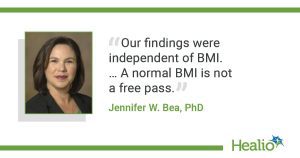“Like most people with uteruses, I’ve spent the majority of my adult life taking birth control to prevent pregnancy.” So begins Steph Montgomery’s recent article on the Bustle-affiliate mommy website Romper, “What Age Should You Stop Taking Birth Control? An Expert Explains.” The article addresses how menopause and various health problems should weigh into your decision for ending your relationship with birth control.
As Montgomery wonders at what age one should stop taking birth control, she admits her intrigue: “the idea of no longer having to worry about taking this pill or having that shot or just no longer having to think about any type of birth control method is, you know, nice.”
She states that studies have shown that most women use some form of birth control until they reach menopause and that, according to the Canadian Medical Association Journal, for women over 35 the “risks of not using birth control—namely, an unplanned pregnancy” outweigh those of taking most birth control.
Montgomery interviews an OB-GYN named Dr. Huma Farid, who describes what pharmaceutical contraceptive option she might recommend a certain patient based on medical history, risk factors, and preferences. For instance, while Dr. Farid recommends some birth control pills, she notes some people should avoid certain hormonal contraceptives if they are susceptible to birth control side effects like blood clot and stroke. Meanwhile, while long-acting reversible contraceptive methods such as the IUD are also highly recommended, she warned of side effects of the copper IUD, specifically, such as heavy bleeding and pain during menstruation.
Applicable Advice and Warnings for Any Age
While the Romper article mainly addresses ending birth control as menopause dawns, some of the warnings and advice as given by Dr. Farid seem applicable to women at any stage who are considering starting or ending birth control. And, as Montgomery implies in her exhaustion of taking birth control, many women today are tired of putting up with birth control side effects and wonder when they can say goodbye to the Pill, patch, ring, IUD, or implant.
Unfortunately, throughout the maze of mentioned birth control side effects and health risks, the Romper article fails to mention that there are effective, side-effect-free options that provide comparable (or in some cases better) pregnancy prevention as the Pill. Fertility Awareness-Based Methods (FABM) are modern and scientifically-backed natural family planning methods that equip women to learn when she is fertile and when she isn’t, as well as other important aspects of her hormonal health. While growing numbers of women are learning about Fertilty Awareness-Based Methods through the FDA’s recently approved “natural contraceptive” app Natural Cycles, still many women today aren’t aware that options besides pharmaceutical contraceptives exist—ones that don’t present the same detrimental and debilitating side effects. Women wondering when to get off birth control, whom the Romper article addresses, deserve to know the facts about Fertility Awareness-Based Methods as a way to treat the whole person, without introducing new problems and side effects.
The post ‘Romper’ Article Recommends Birth Control Through Menopause, Fails to Mention FABM appeared first on Natural Womanhood.
This content was originally published here.








